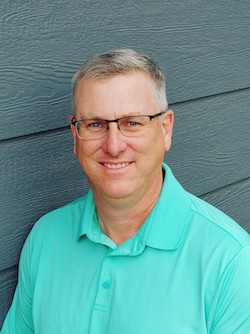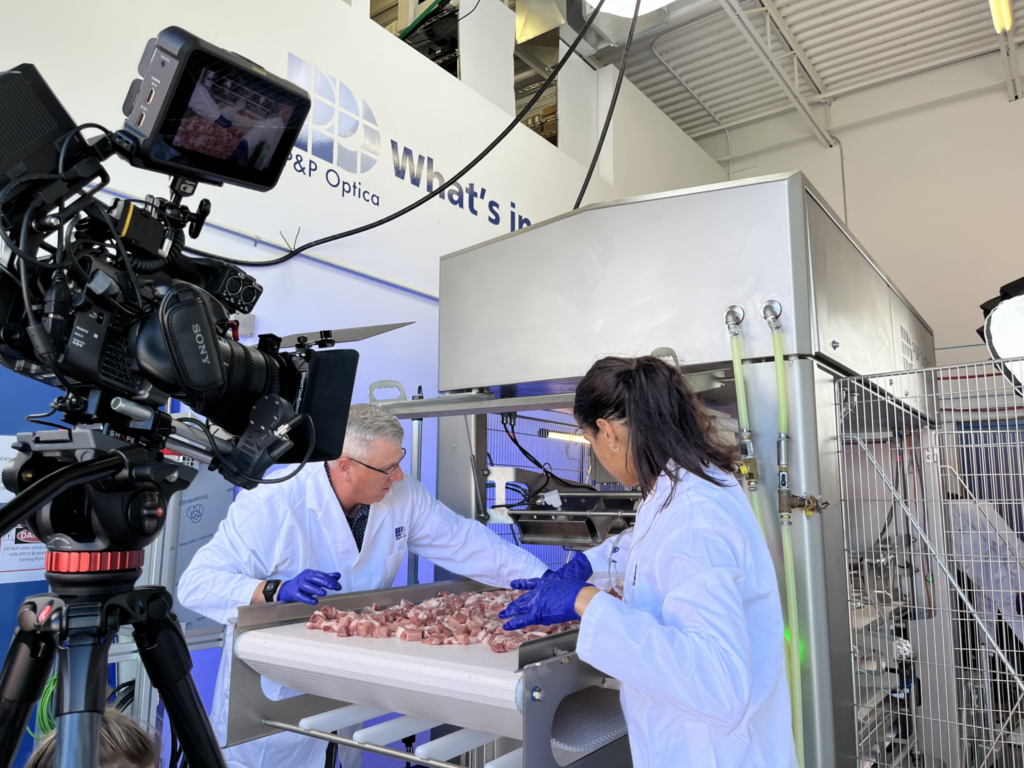
Curious to know more about the team at PPO? “People at PPO” is a blog series that highlights our team’s daily work. In each post, we interview one of our team members to get an inside view of PPO and to learn about their experience working here. Join us as we tell their stories and discover how their work impacts the technology we build.
In this post, we talked to Philip Hancock, Sales Engineer. We discussed some of the work that happens at the plant and PPO’s solution for food manufacturers.
J: Thanks so much for taking the time to chat with our team, we’re really excited to feature someone from our U.S. team!
P: You’re welcome!
J: Let’s start with what you do at PPO?
P: My title is Sales Engineer, but like many people on the team I wear a lot of hats. There are two parts to my role. The first is supporting the sales team at any point in the sales cycle, from accompanying the team on sales calls to plant site visits to better learn the customer’s process. The most important part of my role is to build relationships. This includes plant visits for meetings and seeing the factory floor so we know we are putting our system in the right place for the customer to get the most from our system and to help the customer with inputs regarding product handling prior to and after our system with help from some of our partner integrators that we can call on for expert help.
The second part of my job is commissioning. I gather data to help the PPO Software teams begin the process of model builds. In the plant, I also train operators and sanitation personnel on how to use the system and do various other tasks related to the commissioning process. I don’t do anything technical or related to installation and electrical work. All of that is Kevin Johnson, our field technician.
J: You mentioned it’s important to build relationships in your role, I was wondering why it’s important to do that?
P: Building relationships is how you get people to trust you and your products. In food processing plants, people have a somewhat cynical experience with salespeople. It stems from being promised one thing and the product not being able to deliver the promise for various reasons. Further, sometimes the salesperson simply doesn’t have the experience to completely answer a customer’s question and that comes across as evasive even when they are being totally honest. Being involved in sales calls and commissioning helps with what I like to call “street cred.” Because I can be hands-on in the plant during commissioning and understand the system from an operational standpoint, I can talk the customer’s language and understand their pain points. This ultimately leads to a better conversation and potential opportunity.
J: Before joining PPO, what did you do and how did it prepare you for your role today?
P: I worked at Cargill for 27 years and was involved in many different aspects of the business including beef harvest, purchasing, shipping, further processing, innovation, marketing and project management. The combination of years of experience at a big processor, knowing how the industry works, and learning how to navigate relationships has really prepared me for this role. Having extensive food industry experience helps you build more trust with your customers because they view you as credible. If they see someone who has many years of food experience talking about this technology, they are more willing to take a look. Also, knowing the industry helps you navigate conversations you have with people because, again, you can speak their language. All of this experience has helped with being able to easily understand and talk with customers in sales and commissioning process.

J: That’s a long time in the meat industry! Could you walk me through a typical day for you?
P: A typical day is going to depend on where I am. If I’m at the plant helping with commissioning, I’m up at 5 a.m. and usually at the plant no later than 6:30 a.m. for the start of plant operations. While I’m there, I’m getting the machine ready, cleaning the camera and lamp windows, making sure the guards are in place, training plant employees on how to use the system, gathering data or monitoring work on the machine. Those days usually end around 4 – 5 p.m.
If I’m at home, I’m building relationships with integrators and manufacturers through calls and virtual meetings. When I talk to them, we work to figure out what material handling equipment will create the best possible solution for success. I’m also checking in with the sales team to plan in-person visits. We do a walkthrough of our plan for when we’re at customer locations and gather any information that would be helpful in advance so that we can be good ambassadors when we meet the customer.
J: What’s your favourite part about working at PPO?
P: There are a couple of things. The first is the talented people that work at PPO. Our team is incredibly diverse from many technical areas but we also have a great diversity of thought. To make our Smart Imaging System, you have to learn how to speak different languages like software, hardware, applications and services. While everyone on the team is specialized in their work, they’re also very willing to learn from one another. There’s no such thing as a dumb question at PPO. Lastly, everyone at PPO including HR and marketing can talk about the science behind our system – it’s very rare that every department has a technical understanding of our product.
The second thing is working with cutting-edge technology. There’s very high engagement within the team and lots of long hours put in but, the results are pretty outstanding with what I’ve seen in the field. It’s exciting working with cutting-edge technology.
J: The people is a common answer I hear from the last question. I do agree that the people on this team are extremely talented and such a pleasure to work with. What trends in foreign materials and automation are you noticing at the plant?
P: In terms of foreign materials, it’s a very important subject to our customers. One recall can affect a company’s reputation and bottom line. Food safety and foreign material strategies are not a competitive advantage as a single recall has a ripple effect across the whole industry. The competitive advantage now is finding the equipment that works and can actually detect foreign materials before it reaches the consumer. And this is where equipment like PPO’s Smart Imaging System shines.
J: Why is it important for meat processors to consider detection technology like PPO’s?
P: I can think of two reasons. The first is that human inspection isn’t very reliable. It doesn’t take a long time for any human to begin to lose focus because our brain becomes bored. Sometimes a visual inspector will miss something or start chatting with someone and miss a foreign material. With a piece of equipment, the reliability is consistent.
The second is that all food manufacturers are struggling with labor shortages just to keep producing much-needed food products. If you introduce automation, it’s one solution to solving the labor challenge.
J: Where do you see PPO in the future?
P: I wouldn’t be surprised to see this equipment being used worldwide and not just in North America. Our labor force isn’t going to continue to grow and food production is going to have to embrace technology to meet demand.
J: Last question, what’s your favorite food?
P: Brisket. Whole brisket. I like to smoke my own brisket.
J: Southern smoked brisket sounds delicious. Thanks again Philip for taking the time to chat with us.
P: Thank you!
Interested in working at PPO? Check out our Careers Page for more information!